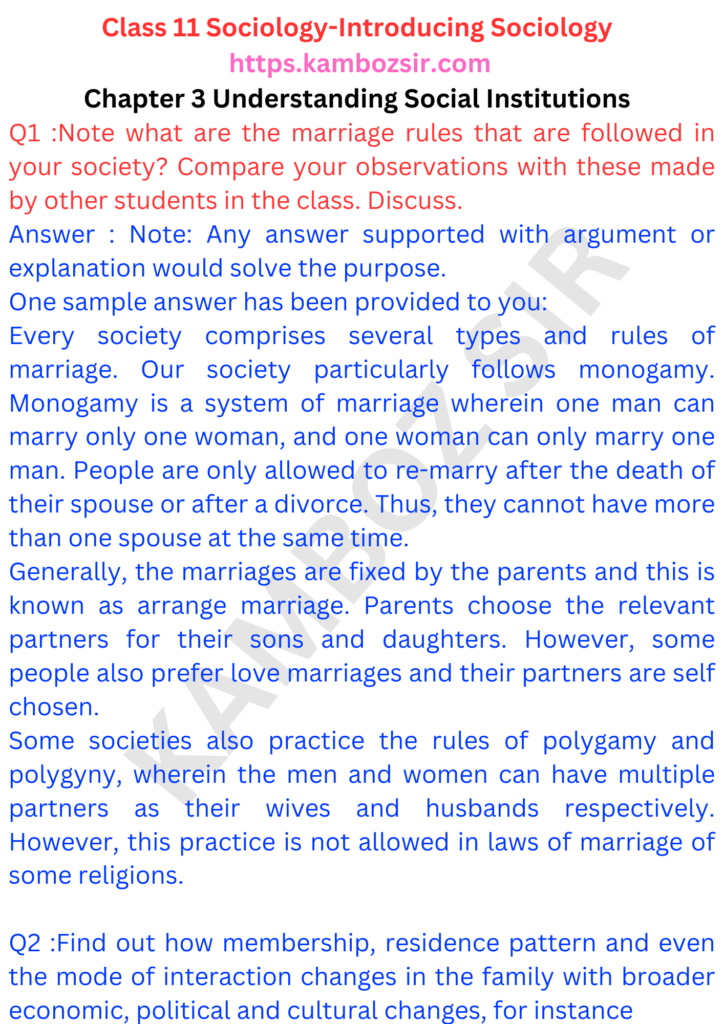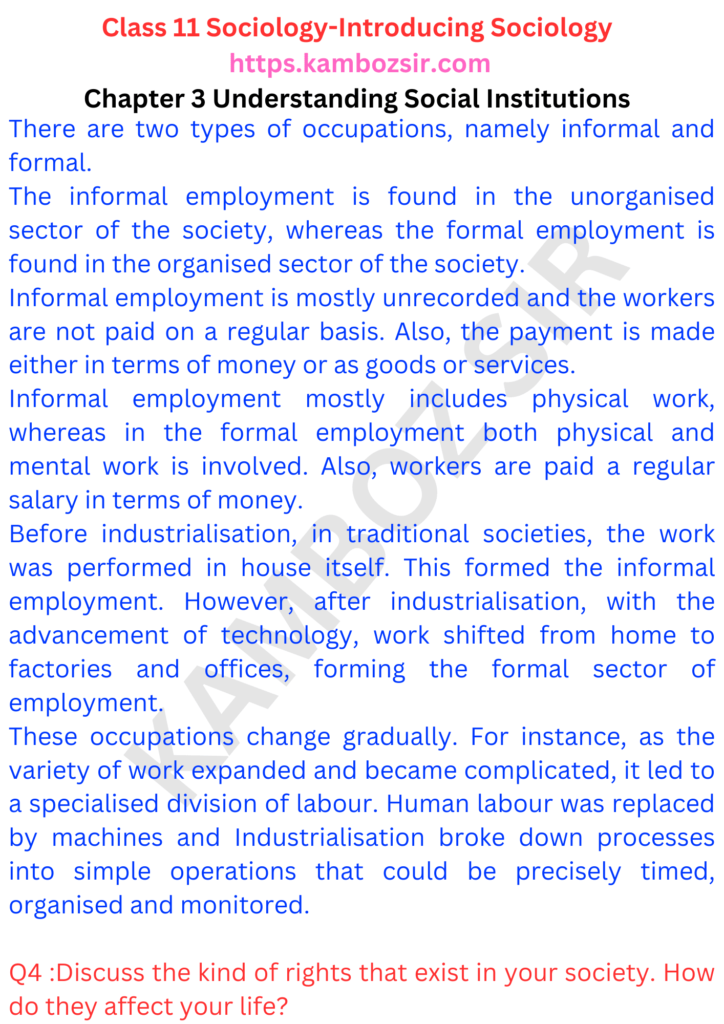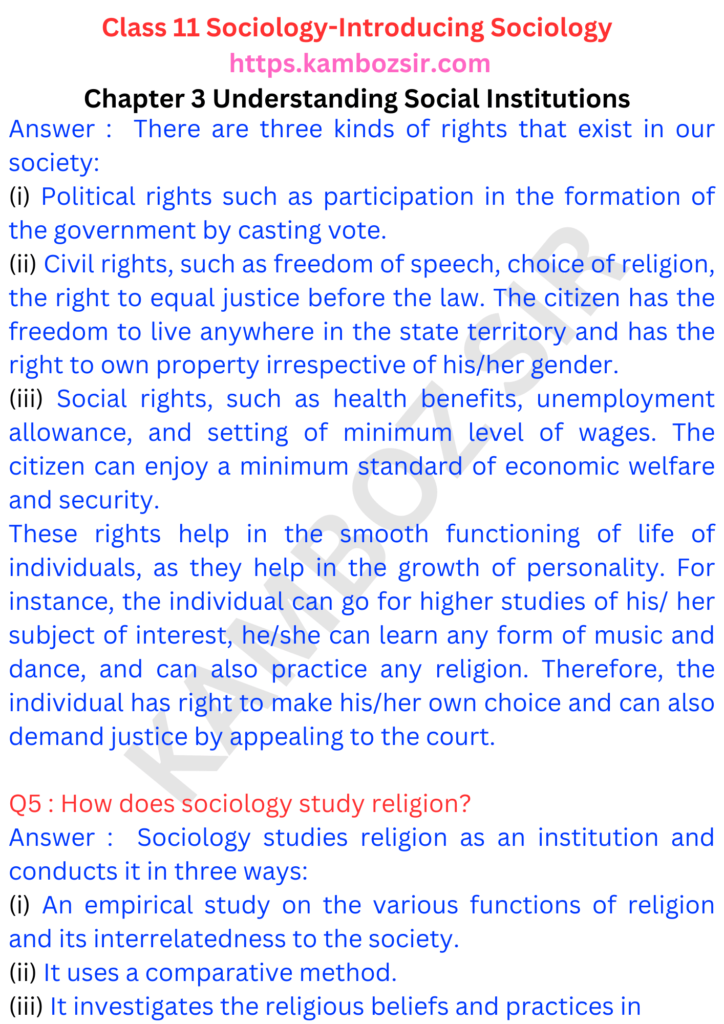Class 11 Sociology Chapter 3 Understanding Social Institutions Solution
Class 11 Sociology Chapter 3 Understanding Social Institutions Solution
In Chapter 3 of Class 11 Sociology, we delve into the concept of social institutions and their significance in society. Social institutions are the organized systems and structures that shape and regulate various aspects of human behavior, interaction, and relationships. This chapter aims to provide a comprehensive understanding of different social institutions and their functions.
We begin by exploring the meaning and characteristics of social institutions. Social institutions are enduring patterns of social behavior and relationships that fulfill specific societal needs. They are established to maintain order, meet basic human needs, and uphold social norms and values. Some examples of social institutions include family, education, economy, religion, and government.
Next, we examine the functions of social institutions. Each social institution serves particular purposes in society. For instance, the family institution provides care, socialization, and reproduction, while the education institution imparts knowledge and skills. The economic institution governs the production, distribution, and consumption of goods and services, and the religious institution offers spiritual beliefs and practices. We explore the interplay between these institutions and how they contribute to the functioning and stability of society.








